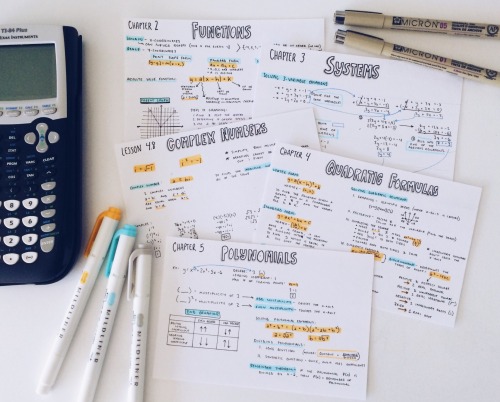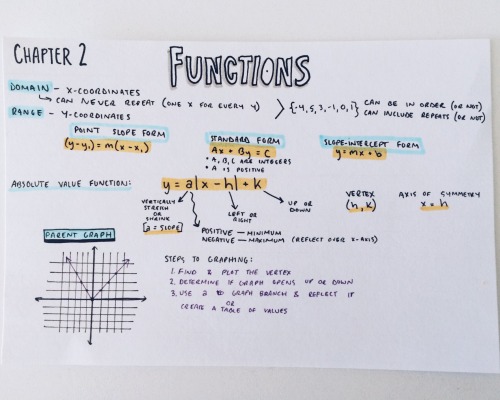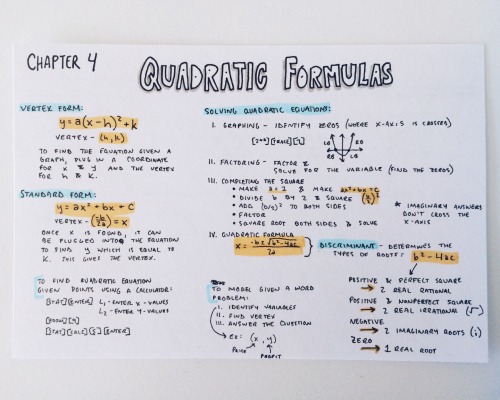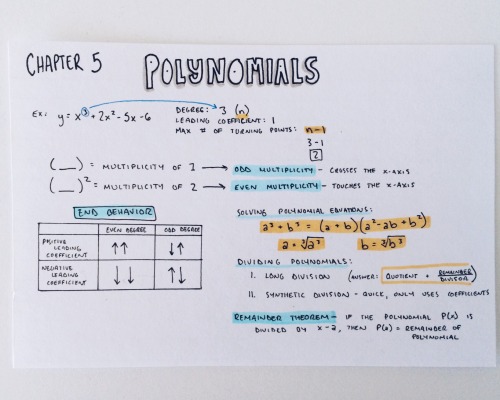ACADEMIC PHRASE BANK MASTERPOST: CONNECTING WORDS FOR ESSAY WRITING
ACADEMIC PHRASE BANK MASTERPOST: CONNECTING WORDS FOR ESSAY WRITING
Addition
To begin with,
In the first place,
Firstly,
The first reason
Additionally
Furthermore,
Another reason why
Secondly, Thirdly,
Next,
Pursuing this further,
Also
Lastly, Finally
In the same way,
Comparison
Similarly,
In the same way,
Likewise,
As with,
Equally,
Contrasting
On the same contrary,
However,
Nevertheless,
On the other hand,
Even so
Alternatively
At the same time
Otherwise
Instead
Conversely
Result
Hence
Therefore
Accordingly
Consequently
Thus
As a result
In consequence
For this reason
For this purpose
Time
Meanwhile
Presently
At last
Finally
Immediately
Thereafter
At that time
Eventually
Currently
Subsequently
In the meantime
Importance
Importantly
Especially
Above all
With attention to
Example
For example
For instance
That is
Such as
As revealed by
Illustrated by
Specifically
In particular
For one thing
This can be seen by
An instance of this
Literary
Clarifies
Conveys
Depicts
Demonstrates
Determines
Displays
Emphasizes
Establishes
Explains
Exemplifies
Highlights
Illustrates
Indicates
Potrays
Represents
Shows
Signifies
Suggests
Beginnings/Causes/Effects
Affects
Generates
Ignites
Impacts
Imposes
Influences
Initiates
Introduces
Involves
Launches
Leads to
Presents
Promotes
Prompts
Results in
Summary
In conclusion,
To sum it all up,
To summarize,
In the final analysis
You can see why …
Finally,
To wrap it all up,
Therefore,
In summary,
In short,
In brief,
More Posts from Swirlspill-study and Others

Based on this post
“Failure is the key to success"
We’ve all heard motivational quotes similar to the above. While they serve as an important reminder on our rough days, sometimes we need something more than hugs and well wishes to get us through.
You’ve failed. What next?
Let it out: Step back. Take a few days off. Shower, catch up on that sleep debt. Remind yourself of who you are outside your academic study. Catch up with a friend for coffee (or just get some coffee). Watch a movie, marathon a tv series, built a pillow fort, tumblr, youtube spiral - anything. Because your academic life is only one piece (of varying size) of a larger puzzle. Remind yourself of who you are outside of university/ school.
Formal/ Informal Avenues of Review : Check your school/university’s academic policies. Are you eligible to resit the exam? Were there any extenuating circumstances that affected your performance (e.g. medical, emergency etc)? Are you eligible to seek an adjustment to your marks? If you’re eligible, what documentation will you need to provide? Which staff member can you contact to follow up your application? If you’re not eligible, are there any other members of staff or advisor (e.g. course advisors, councillors, student leaders) you can discuss your circumstances with?
Reset, Recuperate, Retake: It is likely that you will need to repeat or retake the class/ assessment/ unit. That’s ok. Seek feedback from your lecturer/ tutor or teacher. Consolidate your strong areas. Focus on the areas of the course you find challenging. Use the feedback given to target your study time!
Same Shit, Different Day: While the content may be the same, using a different method to study may be more effective ( see below)
Same content? Change it up!
flashcards by @illolita,
colour coding
audio recordings by @riseandstudy,
mindmaps by @reviseordie
sticky notes @etudiance
Change your study habits by @whilwheaton
Practice past papers. (see below).
Something to help you get back up on your feet
Videos and speeches to help you push through
On being wrong
On regret
On making difficult choices
On what the fuck to do with your life
On "falling behind”
On rushing things
On success
On motivation - for recent graduates
On perspective by @fishingboatproceeds
Just do it
Find songs to cry and scream to
8tracks and this spotify playlist
Classical music for any mood by @violaboss
Find something on the Nostalgia Machine
Infinite Jukebox
Make your own music
IDGAF by Watsky “Let me tell you about my GPA, four-O, straight A’s and my- idgaf!”
Something to help you fucking laugh or smile
Honest Trailers
Dance Mashup
Thomas Sanders @thatsthat24
This kid and this kid
Goat Remixes
This vine
Need more?
Cute flash games (+amazing background music)
Motivation wall by @study-ings
Mug Cake by @sortedfood
Calming Manatee
Ultimate motivation song
SCREAM INTO THE VOID (personal favourite)
Things to remember
Oi, have you ever failed anything?
Yes. See here
Graduation is a journey.
Yes, studyblr makes studying look glamourous, neat, aesthetic, "oh, look how these _____ notes helped me get an A+.” But writing notes, having fancy pens, using apps (whilst useful) only form one part of a larger narrative.
The reality is much less appealing. The road to graduation is not a fairytale. The road to graduation is fucking tough. It may involve tears, frustration, all nighters, crippling anxiety and unhealthy levels of caffeine consumption. One set back does not knock you off the path to graduation. Setbacks are arguably a part of the journey.
Sometimes, hard work and effort will not translate into results.
There’s a special brand of frustration that comes with dedicating the past month/week/ year to a particular project and not achieving your desired result/ grade. It stings like a bitch and is often accompanied by a sense of doubt.
Check that you’ve followed your syllabus. Accept that there may have been factors outside of your control. Revisit the process - what did you enjoy? What did you learn from the mechanics of the process?
The value of hard work does not necessarily lie in the result attained; nor is the result attained a reflection of the worth of your efforts.
Experience is an advantage
Retaking the test/assessment/ unit can be an advantage. You know what questions to expect. More importantly, you know how you react under exam conditions. Prepare. Plan your exam time. Will you start the exam paper from the beginning or the end and work backwards?
Use this experience in those pesky interview questions! (e.g. the good ol’ “tell me about a time you failed”)
Perfection is not a prerequisite to success
Ah, my pesky perfectionist tendencies. At times, I must remind myself that I don’t need to be perfect in order to reach my goal. Not having the latest app, 10 different coloured pens, that fancy notebook, the newest edition of the textbook does not mean I’ve automatically failed. I just have to be more resourceful.
Just start. Work with what you have, to the best of your ability. Yes it may be difficult; you might need to access extra resources online, or find material from other sources. Your notes may all be in the same colour, or spread over three different notebooks. But success will not be an option unless you start.
Other useful tips
On bad semesters by @post–grad
This masterpost by @areistotle
Reducing stress by @mindpalacestudy
How to fail by @psychstudyblr
A final note…
You’ve probably been through hell to get to where you are. Celebrate your achievements - don’t diminish them. Build a support network (heck, at the very least make a youtube playlist of funny videos). You’ve passed an exam before. You’ve endured X number of years of formal academic education. Sure, each exam is slightly different and each comes with its customised brand of torture. No two exams are exactly the same. But have confidence in yourself - you’ve picked up some transferrable skills along the way - determination, resilience, the endurance to pull all nighters.
Whether you’ve been a straight A student up to this point, a masters student or top of the academic pyramid, failure is going to be one of those annoying things you’ll eventually face.
What you do with it?
Well, that’s where shit gets interesting.
All the best,
-fuckstudy
Masterposts are posted every other Monday (asia pacific)/ Sunday (everywhere else). See previous masterposts here. Feel free to request topics here.
previous topic: law 101 - how to read case law

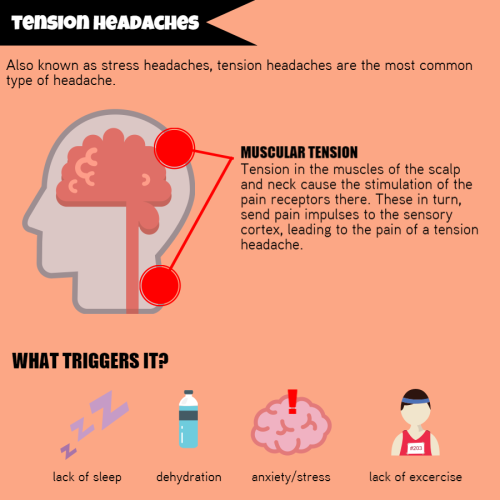
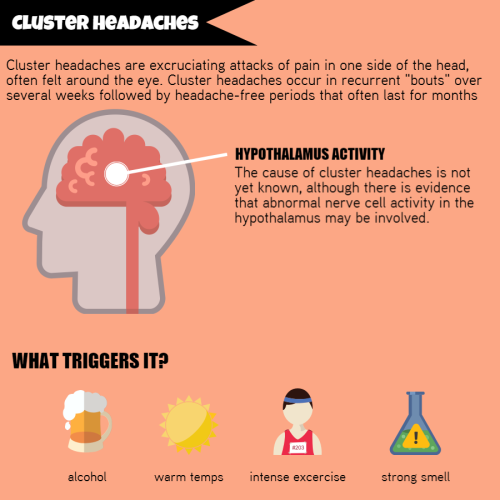

Headaches are still largely a medical mystery. We have no pain receptors on our brain, yet we so often experience pain which seems to come from it. This infographic outlines the 3 main types of headaches, and their probable causes.
The Strange Persistence of First Languages by Julie Sedivy
My First Language by Bernardo Atxaga
Mother Tongue by Yoojin Grace Wuertz
The Ebbing Language: Living in Dutch and English by Sadiqa de Meijer
If language tells us who we are, then who am I? by Stan Grant
To Leave Your Mother Tongue is to Love It More by Ewa Hryniewicz-Yarbrough
The Dream of a Mother Tongue by Oumaima
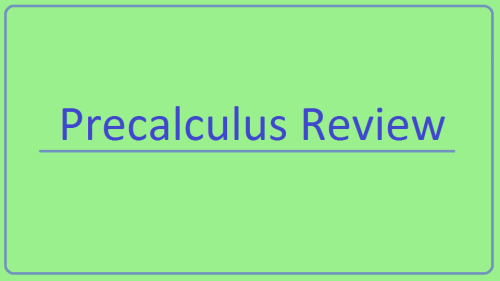
General Resources
Figure Out What You’re Missing
Tennessee Tech Placement Test
Berkeley Placement Test
To Learn Concepts
Videos/Playlists:
Khan Academy - videos and exercises
Khan Academy’s YouTube - videos
ProfRobBob - short filmed lectures
brightstorm - has problems, explanation, and transcript
Websites
TheMathPage - a list of topics and basic explanation, includes problems and step-by-step answers
Coolmath - a list of topics, colorful explanations, and examples
WolframMathWorld - topics, vocab, and quick summaries (probably more useful as a review resource/recap resource)
CK-12 - detailed curriculum, has practice and resources
Open Textbook Store - textbook, homework sets, teacher notes, lecture examples, sample quizzes and exams…
Free courses:
University of California, Irvine at Coursera
University of Texas, Austin at edx
Textbook PDFs
Precalculus by Carl stitz and Jeff Zeager
Precalculus by David H. Collingwood, K. david Prince, and Matthew M. Conroy
Other Resources:
A formula sheet
Practice Problems
Non-interactive:
University of California, Davis Resource - list of topics and example problems and answers
NYU - list of topics and example problems and answers, like lecture note format
Mathematics Vision Project - has a mix of algebra, geometry, and trig. These are the “workbooks” that my school uses.
Interactive
IXL - list of many topics and questions that increase in difficulty when you answer correctly.
List of Topics to Be Solid With Before Calculus
I took this list of topics from various internet sources and my own teacher. Resources to learn each of these are pretty easy to find. I haven’t taken Calculus yet (just have been freaking out about it), so if anyone has insight, please share!
Essential Alg/Precalc
*in italics are those my teacher stressed for my class in particular
find the equation of a line
trig (properties and values, unit circle, graphs, trig ratios (solve triangles using trig ratios & define), trig relations/identites)
different kinds of equations and graphing (polynomial, absolute value, exponential, polar, parametric, inequalities [esp those with absolute value], logs)
logs
limits
vectors
algebraic manipulation (factoring, completing the square, simplying expressions, solving equations)
–manipulate polynomials
formula manipulation
manipulation of abstract function expressions
function transformations (differences between y = f(x) + c and y = f(x+c) & the like, inverse functions)
using your calculator
analytical geometry
Memorize the following graphs visually - will help with derivatives (x^2, x^3, sqrt(x), 1/x, 1/(x^2), logx)
my masterlist of 'how to life’ tips
Cleaning & Tidying
Make your bed in the morning. It takes seconds, and it’s worth it.
Reset to zero each morning.
Use the UFYH 20/10 system for clearing your shit.
Get a reed diffuser and stick it on your windowsill.
Have a ‘drop-zone’ box where you dump anything and everything. At the beginning/end of the day, clear it out and put that shit away.
Roll your clothes, don’t fold them - or fold them vertically.
Automate your chores. Have a cleaning schedule and assign 15mins daily to do whatever cleaning tasks are set for that day. Set a timer and do it - once the timer is up, finish the task you’re on and leave it for the day.
Fold your clothes straight out of the tumble dryer (if you use one), whilst they’re still warm. This minimises creases and eliminates the need for ironing.
Clean your footwear regularly and you’ll feel like a champ.
Organisation & Productivity
Learn from Eisenhower’s Importance/Urgency matrix.
Try out the two-minute rule and the Pomodoro technique.
Use. A. Planner. (Or Google Calendar, if that’s more your thing.)
Try bullet journalling.
Keep a notebook/journal/commonplace book to dump your brain contents in on the regular.
Set morning alarms at two-minute intervals rather than five, and stick your alarm on the other side of the room. It’s brutal, but it works.
Set three main goals each day, with one of them being your #1 priority. Don’t overload your to-do list or you’ll hit overload paralysis and procrastinate.
If you’re in a slump, however, don’t be afraid to put things like “shower” on your to do list - that may be a big enough goal in itself, and that’s okay.
Have a physical inbox - a tray, a folder, whatever. If you get a piece of paper, stick it in there and sort through it at the end of the week.
Consider utilising the GTD System, or a variation of it.
Try timeboxing.
Have a morning routine, and guard that quiet time ferociously.
Save interesting-looking shit to instapaper. Have a set time where you read through the stuff you saved to instapaper and save the shit that you like from instapaper to evernote (or bookmark it properly).
During your working hours, put on your footwear, even if you’re sat on your bed. (Why?)
Have a folder for all your important documents and letters, organised by topic (e.g. medical, bank, university, work, identification). At the front of this folder, have a sheet of paper with all the key information written on it, such as your GP’s details, your passport details, driving licence details, bank account number, insurance number(s), and so on.
Try using StayFocusd and RescueTime (or similar apps/extensions). (I promise, you’ll find that you’re not as busy as you think you are.)
Schedule working time and down time alike, in the balance that works for you.
Money
Have. A. God. Damn. Budget.
Use a money tracker like toshl, mint, or splitwise. Enter all expenses asap! (You will forget, otherwise.)
Have a ‘money date’ each week, where you sort through your finances from the past seven days and then add it to a spreadsheet. This will help you identify your spending patterns and whether your budget is actually working or not.
Pack your own frickin’ lunch like a grown-up and stop buying so many takeaway coffees. Keep snacks in your bag.
Go to your bank and take out £100 in £1 coins (or w/e your currency is). That shit will come in useful for all kinds of things and you’ll never be short on change for the bus or the laundry.
Food & Cooking
Know how to cook the basics: a starch, a protein, a vegetable, and a sauce.
Simple, one-pot meals (“a grain, a green, and a bean”) are a godsend.
Dried porcini mushrooms make a fantastic stock to cook with.
Batch cook and freeze. Make your own ‘microwave meals’.
Buy dried goods to save money - rice and beans are a pittance. (Remember to soak dried beans first, though!)
Consider Meatless Mondays; it’s healthier, cheaper, and more environmentally friendly.
Learn which fruits and vegetables are cheapest at your store, and build a standard weekly menu around those. (Also remember that frozen vegetables are cheap and healthy.)
Learn seasoning combinations. Different seasoning, even with the exact same ingredients, can make a dish seem completely new.
Don’t buy shit for a one-off recipe, especially if you won’t use it all. If you really want to try out a recipe, see if a friend would be interested in making it with you, then pool for the expenses.
Make your own goddamned pasta sauce. Jamie Oliver has a decent recipe here, but the beauty of tomato sauce is that you can totally wing it and adapt the fuck out of it.
Misc
Have a stock email-writing format.
Want to start running, but find it boring? Try Zombies, Run!.
Keep a goddamn first aid kit and learn how to use it.
Know your OTC pain relief.
Update your CV regularly.
Keep a selection of stamps and standard envelopes for unexpected posting needs. (It happens more regularly than you would think!)
Some final words of advice:
Organisation is not a goal in itself, it is a tool. Don’t get caught up in the illusion of productivity and get distracted from the actual task at hand.
Routines and habits will help you. Trust in them.
You have the potential to be an organised and productive person, just as much as anybody else. It just takes practice.




This is what my revision wall looked like this time last year. So gutted I got rid of these note cards. I’m so dumb.

HOW TO WRITE A HIGH-GRADE RESEARCH PAPER
~~~~~~~~~~~~~~~~~~~~~~~~~~~~~~~~~~~~~~~~~~
The first time I had to write a research paper for university was one of the most stressful experiences I’d ever had - it was so different to anything I’d ever done before and caused me so much anxiety! It turned out that I’m pretty damn good at writing research reports and I’m now looking to pursue a career in psychological research.
I have never received less than a First (or 4.0 GPA for you American studiers) in my research papers so I thought I’d share my top tips on how to write a kick-ass, high-grade research paper.
*disclaimer: I am a psychology student, my tips are based on my personal experience of writing up psychological research (quantitative and qualitative); therefore, they may require some adaptation in order to be applied to your field of study/research*
These tips will be split up into the different sections a research paper should consist of: abstract, introduction, methods, results, discussion, references and formatting.
ABSTRACT
The aim of an abstract is to summarise your whole paper - it should be concise, include key-words, highlight the key points of your paper and be written last.
When I say concise, I mean concise! The abstract is what other students and researchers will read in order to decide whether your research is relevant their own work and essentially determines whether or not they’ll read on - they want to know the key details and don’t want to be overwhelmed with information.
I always aim to keep my abstracts under 250 words. I set myself this limit to stop myself waffling and dwelling on unimportant points, it helps me to be really selective of what I include and ensures I’m gripping the reader from the start.
Your abstract should discuss the research rationale, the methods and designs used, your results and the general conclusion(s) drawn. One or two sentences on each of these topics is enough.
Make sure you’re using key-words throughout your abstract as this will also help the reader decide whether your work is relevant to theirs. You can make key-words super obvious by highlighting them in a key at the bottom of your abstract (see below) or just used jargon consistently. Using key-words is also important if you’re looking to get your work published, these words will help people find your work using search engines.

Finally, write your abstract last! An abstract is a summary of your whole research paper which makes it practically impossible to write well first. After writing the rest of your paper, you will know your research inside and out and already have an idea of what key things you need to highlight in your abstract.
INTRODUCTION
For me, the introduction section is always the most intimidating to write because it’s like painting on a blank canvas - massively daunting and leaving you terrified to make a mistake!
The aim of an introduction is to provide the rationale for your research and justify why your work is essential in the field. In general, your introduction should start very broad and narrow down until you arrive at the niche that is your research question or hypothesis.
To start, you need to provide the reader with some background information and context. You should discuss the general principle of your paper and include some key pieces of research (or theoretical frameworks if relevant) that helps your reader get up to speed with the research field and where understanding currently lies. This section can be pretty lengthy, especially in psychological research, so make sure all of the information you’re including is vital as it can be pretty easy to get carried away.
This background should lead you onto the rationale. If you’ve never written a research paper before, the rationale is essentially the reason behind your own research. This could be building on previous findings so our understanding remains up to date, it could be picking up on weaknesses of other research and rectifying these issues or it could be delving into an unexplored aspect of the field! You should clearly state your rationale and this helps lead into the next section.
You should end your introduction by briefly discussing your current research. You need to state your research question or hypothesis, how you plan on investigating the question/hypothesis, the sample you plan on using and the analysis you plan to carry out. You should also mention any limitations you anticipate to crop up so you can address these in your discussion.
In psychology, references are huge in research introductions so it is important to use an accurate (and modern as possible) reference for each statement you are making. You can then use these same references in your discussion to show where your research fits into the current understanding of the topic!
METHODS
Your methods section should make use of subheadings and tables where necessary and should be written in past tense. This can make the (potentially) lengthy section easier to navigate for the reader. I usually use the following headings: participants, materials, design, procedure.
The participants section should describe the sample that took part in your research. Age, gender, nationality and other relevant demographic information should be provided as well as the sampling technique. Personally, I use a table (see below) alongside my continuous prose as an alternative way of viewing my sample population. Please note, if you’re using a table make sure it adheres to your university guidelines.

The materials section of your methods should include any equipment, resources (i.e. images, books, diagrams) or any other materials used in your data collection. You should also reference the program that helped you conduct your analysis. For example, if you are writing a qualitative research paper, you may want to include Microsoft Word in your materials if you use the program to transcribe interviews.
You should then describe the design used in your research. All variables should be identified in this paragraph, if relevant. You should also discuss whether your research is within-groups or between-groups, again only if relevant.
Last is your procedure section - the most important one! You must write this section with enough detail so that anybody could pick it up, read it and conduct the same experiment with ease. You should describe what participants were required to do, how data was collected and it should be written in chronological order! While it’s important to provide enough information, try not to overwhelm the reader with lengthy sentences and unnecessary information.
RESULTS
Your results section’s sole purpose is to provide the reader with the data from your study. It should be the second shortest section (abstract being first) in your research paper and should stick to the relevant guidelines in regards to reporting figures, tables and diagrams. Your goal is to relay results in the most objective and concise way possible.
Your results section serves to act as evidence for the claims you’ll go on to make during your discussion but you must not be biased in the results you report. You should report enough data to sufficiently justify your conclusions but must also include data that doesn’t support your original hypothesis or research question.
Reporting data is most easily done through tables and figures as they’re easy to look at and select relevant information. If you’re using tables and figures you should always make sure you’re stating effect sizes and p values and to a consistent decimal place. Illustrative tables and figures should always be followed by supporting summary text consisting of a couple of sentences relaying the key statistical findings in continuous prose.
DISCUSSION
The discussion section should take the opposite approach to your introduction! You should start discussing your own research and broaden the discussion until you’re talking about the general research field.
You should start by stating the major findings of your study and relating them back to your hypothesis or research questions. You must must must explicitly state whether you reject or accept your experimental hypothesis, if you have one. After stating your key findings you should explain the meaning, why they’re important and where they fit into the existing literature. It’s here that you should bring back the research you discussed in your introduction, you should relate your findings to the current understanding and state the new insight your research provides.
You should then state the clinical relevance of your research. Think about how your findings could be applied to real-life situations and discuss one or two practical applications.
After this, discuss the limitations of your research. Limitations could include sample size and general sample population and how this effects generalisability of findings, it could include methodological problems or research bias! These limitations will allow you to discuss how further research should be conducted. Suggest ways in which these limitations could be rectified in future research and also discuss the implications this could have on findings and conclusions drawn.
Finally, you need to give the reader a take-home message. A sentence or two to justify (again) the need for your research and how it contributes to current understanding in the field. This is the last thing your audience will read so make it punchy!
~~~~~~~~~~~~~~~~~~~~~~~~~~~~~~~~~~~~
That’s it folks! My tips for writing a kick-ass, high-grade research paper based on my personal experience. If you have any questions regarding things I’ve missed or didn’t provide enough detail of, then please just send me an ask!
Also, if any of you would like to read any of my past research papers I would be more than happy to provide you with them :-))

I believe in free education, one that’s available to everyone; no matter their race, gender, age, wealth, etc… This masterpost was created for every knowledge hungry individual out there. I hope it will serve you well. Enjoy!
FREE ONLINE COURSES (here are listed websites that provide huge variety of courses)
Alison
Coursera
FutureLearn
open2study
Khan Academy
edX
P2P U
Academic Earth
iversity
Stanford Online
MIT Open Courseware
Open Yale Courses
BBC Learning
OpenLearn
Carnegie Mellon University OLI
University of Reddit
Saylor
IDEAS, INSPIRATION & NEWS (websites which deliver educational content meant to entertain you and stimulate your brain)
TED
FORA
Big Think
99u
BBC Future
Seriously Amazing
How Stuff Works
Discovery News
National Geographic
Science News
Popular Science
IFLScience
YouTube Edu
NewScientist
DIY & HOW-TO’S (Don’t know how to do that? Want to learn how to do it yourself? Here are some great websites.)
wikiHow
Wonder How To
instructables
eHow
Howcast
MAKE
Do it yourself
FREE TEXTBOOKS & E-BOOKS
OpenStax CNX
Open Textbooks
Bookboon
Textbook Revolution
E-books Directory
FullBooks
Books Should Be Free
Classic Reader
Read Print
Project Gutenberg
AudioBooks For Free
LibriVox
Poem Hunter
Bartleby
MIT Classics
Many Books
Open Textbooks BCcampus
Open Textbook Library
WikiBooks
SCIENTIFIC ARTICLES & JOURNALS
Directory of Open Access Journals
Scitable
PLOS
Wiley Open Access
Springer Open
Oxford Open
Elsevier Open Access
ArXiv
Open Access Library
LEARN:
1. LANGUAGES
Duolingo
BBC Languages
Learn A Language
101languages
Memrise
Livemocha
Foreign Services Institute
My Languages
Surface Languages
Lingualia
OmniGlot
OpenCulture’s Language links
2. COMPUTER SCIENCE & PROGRAMMING
Codecademy
Programmr
GA Dash
CodeHS
w3schools
Code Avengers
Codelearn
The Code Player
Code School
Code.org
Programming Motherf*?$%#
Bento
Bucky’s room
WiBit
Learn Code the Hard Way
Mozilla Developer Network
Microsoft Virtual Academy
3. YOGA & MEDITATION
Learning Yoga
Learn Meditation
Yome
Free Meditation
Online Meditation
Do Yoga With Me
Yoga Learning Center
4. PHOTOGRAPHY & FILMMAKING
Exposure Guide
The Bastards Book of Photography
Cambridge in Color
Best Photo Lessons
Photography Course
Production Now
nyvs
Learn About Film
Film School Online
5. DRAWING & PAINTING
Enliighten
Ctrl+Paint
ArtGraphica
Google Cultural Institute
Drawspace
DragoArt
WetCanvas
6. INSTRUMENTS & MUSIC THEORY
Music Theory
Teoria
Music Theory Videos
Furmanczyk Academy of Music
Dave Conservatoire
Petrucci Music Library
Justin Guitar
Guitar Lessons
Piano Lessons
Zebra Keys
Play Bass Now
7. OTHER UNCATEGORIZED SKILLS
Investopedia
The Chess Website
Chesscademy
Chess.com
Spreeder
ReadSpeeder
First Aid for Free
First Aid Web
NHS Choices
Wolfram Demonstrations Project
Please feel free to add more learning focused websites.
*There are a lot more learning websites out there, but I picked the ones that are, as far as I’m aware, completely free and in my opinion the best/ most useful.
-
 yunolaf liked this · 1 month ago
yunolaf liked this · 1 month ago -
 kavrin liked this · 1 month ago
kavrin liked this · 1 month ago -
 batcrazy-96 liked this · 2 months ago
batcrazy-96 liked this · 2 months ago -
 thunderstorm-books reblogged this · 3 months ago
thunderstorm-books reblogged this · 3 months ago -
 gongzilittletaroyu liked this · 3 months ago
gongzilittletaroyu liked this · 3 months ago -
 brexana liked this · 4 months ago
brexana liked this · 4 months ago -
 justanicecupofokay liked this · 6 months ago
justanicecupofokay liked this · 6 months ago -
 justmejustmejustme reblogged this · 6 months ago
justmejustmejustme reblogged this · 6 months ago -
 literallys-illiteracy liked this · 7 months ago
literallys-illiteracy liked this · 7 months ago -
 animeschibia reblogged this · 8 months ago
animeschibia reblogged this · 8 months ago -
 hellocupidlove14 liked this · 9 months ago
hellocupidlove14 liked this · 9 months ago -
 pghage liked this · 10 months ago
pghage liked this · 10 months ago -
 0xzerox reblogged this · 10 months ago
0xzerox reblogged this · 10 months ago -
 noeggets liked this · 10 months ago
noeggets liked this · 10 months ago -
 geograblr reblogged this · 11 months ago
geograblr reblogged this · 11 months ago -
 heckcareoxytwit liked this · 11 months ago
heckcareoxytwit liked this · 11 months ago -
 mein-holgi-boy liked this · 1 year ago
mein-holgi-boy liked this · 1 year ago -
 artreferencesvault reblogged this · 1 year ago
artreferencesvault reblogged this · 1 year ago -
 145678 liked this · 1 year ago
145678 liked this · 1 year ago -
 rj-resources reblogged this · 1 year ago
rj-resources reblogged this · 1 year ago -
 shyobservationblog liked this · 1 year ago
shyobservationblog liked this · 1 year ago -
 isettrendz liked this · 1 year ago
isettrendz liked this · 1 year ago -
 i-will-talk-your-ears-off liked this · 1 year ago
i-will-talk-your-ears-off liked this · 1 year ago -
 thewickerwomen reblogged this · 1 year ago
thewickerwomen reblogged this · 1 year ago -
 ihaveneverseensnow liked this · 1 year ago
ihaveneverseensnow liked this · 1 year ago -
 jalebibabie liked this · 1 year ago
jalebibabie liked this · 1 year ago -
 aceoflights liked this · 1 year ago
aceoflights liked this · 1 year ago -
 jabberwockprince liked this · 1 year ago
jabberwockprince liked this · 1 year ago -
 galaticuwu reblogged this · 1 year ago
galaticuwu reblogged this · 1 year ago -
 tedisipi reblogged this · 1 year ago
tedisipi reblogged this · 1 year ago -
 diya-rei liked this · 1 year ago
diya-rei liked this · 1 year ago -
 pink0-0 liked this · 1 year ago
pink0-0 liked this · 1 year ago -
 carusti liked this · 1 year ago
carusti liked this · 1 year ago -
 lovelyabstract reblogged this · 1 year ago
lovelyabstract reblogged this · 1 year ago -
 mika21cat liked this · 1 year ago
mika21cat liked this · 1 year ago -
 miss-maneuver liked this · 1 year ago
miss-maneuver liked this · 1 year ago -
 creatabcomsoy liked this · 1 year ago
creatabcomsoy liked this · 1 year ago -
 peelupani liked this · 1 year ago
peelupani liked this · 1 year ago -
 bluebird-in-a-cagedrawing liked this · 1 year ago
bluebird-in-a-cagedrawing liked this · 1 year ago -
 dutchs-blog liked this · 1 year ago
dutchs-blog liked this · 1 year ago -
 roselyn-writing reblogged this · 1 year ago
roselyn-writing reblogged this · 1 year ago -
 roselyn-writing liked this · 1 year ago
roselyn-writing liked this · 1 year ago -
 girl-please-study liked this · 1 year ago
girl-please-study liked this · 1 year ago
a study blog for collected references, advice, and inspiration
267 posts
